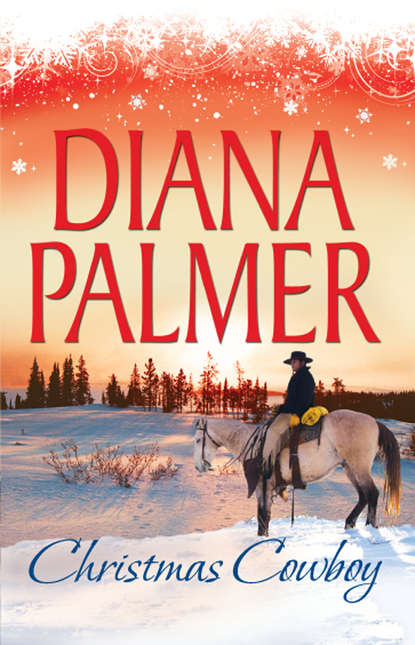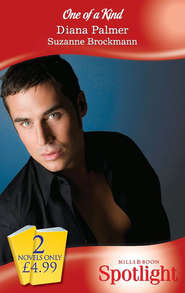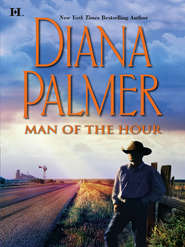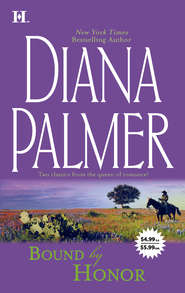По всем вопросам обращайтесь на: info@litportal.ru
(©) 2003-2024.
✖
Christmas Cowboy: Will of Steel / Winter Roses
Автор
Год написания книги
2018
Настройки чтения
Размер шрифта
Высота строк
Поля
“I think of it as steak with a curly tail,” he replied.
She burst out laughing. He was so different off the job. She’d seen him walking down the sidewalk in town, somber and dignified, almost unapproachable. Here, at home, he was a changed person.
“What are you brooding about?” he wondered.
“Was I? I was just thinking how different you are at home than at work.”
“I should hope so,” he sighed, as he took the omelet up onto a platter. “I mean, think of the damage to my image if I cooked omelets for the prisoners.”
“Chief Barnes used to,” she said. “I remember Uncle John talking about what a sweet man he was. He’d take the prisoners himself to funerals when they had family members die, and in those days, when the jail was down the hall from the police department, he’d cook for them, too.”
“He was a kind man,” Ted agreed solemnly.
“To think that it was one of the prisoners who killed him,” she added quietly as she turned the bacon. “Of all the ironies.”
“The man was drunk at the time,” Ted said. “And, if you recall, he killed himself just a few weeks later while he was waiting for trial. He left a note saying he didn’t want to put the chief’s family through any more pain.”
“Everybody thought that was so odd,” she said. “But people forget that murderers are just like everybody else. They aren’t born planning to kill people.”
“That’s true. Sometimes it’s alcohol or drugs that make them do it. Other times it’s an impulse they can’t control. Although,” he added, “there are people born without a conscience. They don’t mind killing. I’ve seen them in the military. Not too many, thank goodness, but they come along occasionally.”
“Your friend who was a sniper, was he like that?”
“Not at all,” he said. “He was trained to think of it as just a skill. It was only later, when it started to kill his soul, that he realized what was happening to him. That was when he got out.”
“How in the world did he get into law enforcement, with such a background?” she wondered.
He chuckled. “Uncle Sam often doesn’t know when his left hand is doing something different than his right one,” he commented. “Government agencies have closed files.”
“Oh. I get it. But those files aren’t closed to everyone, are they?”
“They’re only accessible to people with top-secret military clearance.” He glanced at her amusedly. “Never knew a civilian, outside the executive branch, who even had one.”
“That makes sense.”
He pulled out her chair for her.
“Thank you,” she said, with surprise in her tone.
“I’m impressing you with my good manners,” he pointed out as he sat down across from her and put a napkin in his lap.
“I’m very impressed.” She tasted the omelet, closed her eyes and sighed. “And not only with your manners. Ted, this is delicious!”
He grinned. “Thanks.”
“What did you put in it?” she asked, trying to decide what combination of spices he’d used to produce such a taste.
“Trade secret.”
“You can tell me,” she coaxed. “After all, we’re almost engaged.”
“The ‘almost’ is why I’m not telling,” he retorted. “If things don’t work out, you’ll be using my secret spices in your own omelets for some other man.”
“I could promise.”
“You could, but I’m not telling.”
She sighed. “Well, it’s delicious, anyway.”
He chuckled. “The bacon’s not bad, either,” he conceded, having forgone the country ham that would need warming. He was hungry.
“Thanks.” She lifted a piece of toast and gave it a cold look. “Shame we can’t say the same for the toast. Sorry. I was busy trying not to burn the bacon, so I burned the toast instead.”
“I don’t eat toast.”
“I do, but I don’t think I will this time.” She pushed the toast aside.
After they ate, he walked her around the property. He only had a few beef steers in the pasture. He’d bought quite a few Angus cattle with his own uncle, and they were at the ranch that Jillian had shared with her uncle John. She was pensive as she strolled beside him, absently stripping a dead branch of leaves, thinking about the fate of Uncle John’s prize beef if she didn’t marry Ted sometime soon.
“Deep thoughts?” he asked, hands in the pockets of his jeans under his shepherd’s coat.
She frowned. She was wearing her buckskin jacket. One of the pieces of fringe caught on a limb and she had to stop to disentangle it. “I was thinking about that resort,” she confessed.
“Here. Let me.” He stopped and removed the branch from the fringe. “Do you know why these jackets always had fringe?”
She looked up at him, aware of his height and strength so close to her. He smelled of tobacco and coffee and fir trees. “Not really.”
He smiled. “When the old-timers needed something to tie up a sack with, they just pulled off a piece of fringe and used that. Also, the fringe collects water and drips it away from the body.”
“My goodness!”
“My grandmother was full of stories like that. Her grandfather was a fur trapper. He lived in the Canadian wilderness. He was French. He married a Blackfoot woman.”
She smiled, surprised. “But you always talk about your Cheyenne heritage.”
“That’s because my other grandmother was Cheyenne. I have interesting bloodlines.”
Her eyes sketched his high-cheekboned face, his black eyes and hair and olive complexion. “They combined to make a very handsome man.”
“Me?” he asked, surprised.
She grinned. “And not a conceited bone in your body, either, Ted.”
He smiled down at her. “Not much to be conceited about.”
“Modest, too.”
He shrugged. He touched her cheek with his fingertips. “You have beautiful skin.”











